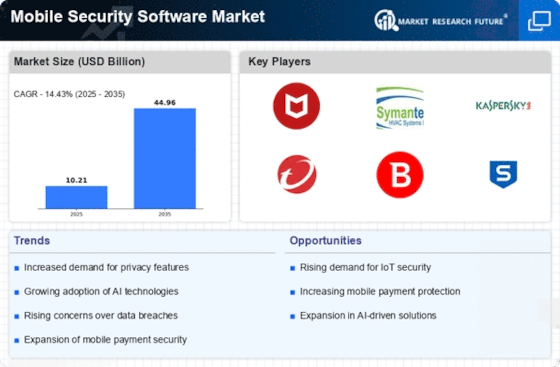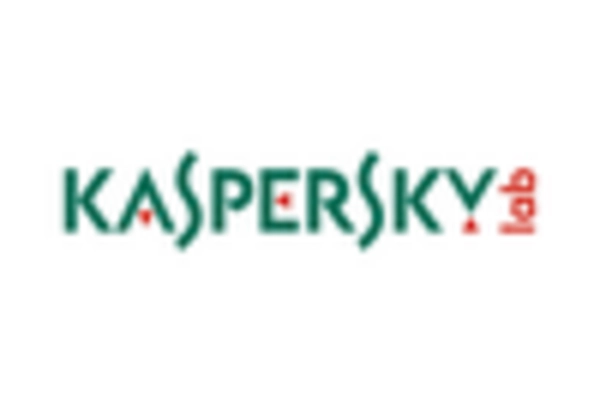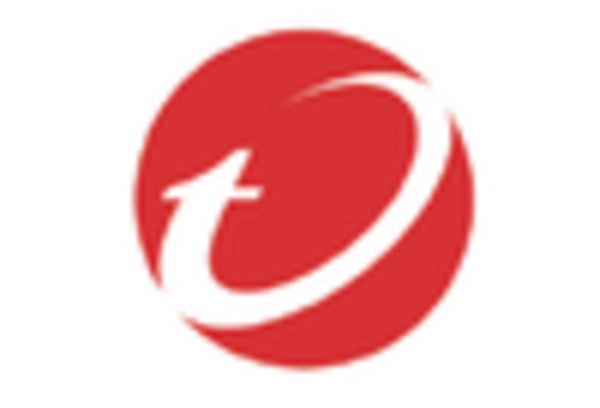Market Share
Mobile Security Software Market Share Analysis
In the steadily developing scene of the Mobile Security Software Market, market share situating methodologies assume an essential part in deciding the achievement and maintainability of organizations inside the business. With the increase in demand for mobile security solutions, different strategies are used to establish and strengthen market share by organizations.
Prominent one of such methods is through mechanical growth. The entities try to identify their mobile security software by offering advanced features that solve newly appeared threats and vulnerabilities. This may include sophisticated risk detection algorithms, advanced encryption methods and real-time monitoring features. In order to attract a knowledge-based client that has appreciation for upgraded safety measures, organizations aim to stay ahead when it comes innovation in a reliable manner.
The other important element in market share positioning is ruthless judging. Some other organizations consider a strategy of providing cost-effective solutions without compromising on the quality of their mobile security software. This strategy aims to capture a greater market share through cost-conscious consumers and businesses. Such organizations often impose economies of scale, essential relationships or professional functional paradigms that maintain price competition and thus win a stronghold in the market.
Other important factors of market share positioning in the Mobile Security Software Market include key alliances and collaborations. Organizations form unions with portable gadget makers, network suppliers or other partners to broaden their scope and influence. By integrating their security frameworks into mass adopted platforms or devices, organizations can leverage existing clienteles and gain a competitive edge. However, this method enhances the level of market entry and contributes to name awareness and credibility.
In addition, client driven techniques are increasingly becoming essential for market share growth. Organizations invest in customer support services, intuitive connection points and personalization alternatives that help them deal with the various needs of their client base. Satisfactory contact with a customer can lead to loyalty, word of mouth and repeated business which massively affects the market share of an organization.
With the increasing concern for sustainability and corporate social responsibility, some companies assume ethical and environmentally-friendly practices to stand out in the market. This includes simple data management techniques, lower carbon footprints and compliance with moral strategic policies. A socially competent image can reverberate with a segment of consumers who emphasize these characteristics, thus contributing to market share growth.
In addition, consistent monitoring of market trends and adjusting strategies accordingly plays a major role towards the enhanced performance in Mobile Security Software Market. Organizations that stay dexterous and receptive to advancing dangers and client inclinations are better situated to change their market share situating methodologies successfully. This flexibility might include turning towards new innovations, entering undiscovered markets, or patching up existing item contributions to line up with changing shopper requests.


















Leave a Comment